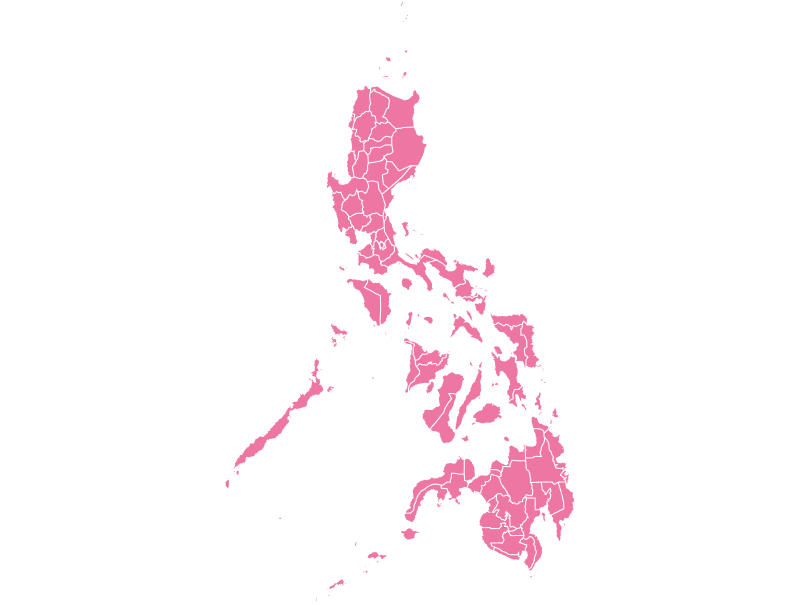North America
Importing to the Philippines
The Philippines is a vibrant player in Southeast Asia’s ever-evolving global tech landscape. A nation that transcends its beauty to become a digital paradise of innovation and opportunity. The nation’s rise is driven by an increase in demand for cloud computing, big data, and artificial intelligence. The government is continuously working to encourage investment in the data center domain.

Tax
up to 12%
Duties
up to 20%
Lead Times
4-5 weeks
Restricted Items
Second-hand goods
Best Carrier Option
Freight Forwarder
Non-Working Days
Saturday, Sunday, and Public Holidays
Prominent Language
Tagalog & Cebuano
Exporting from and Importing into the Philippines
The Philippines is a central hub for outsourcing and offshoring, with over 1 million people working in the IT industry. The country is also a significant producer of mobile applications, with over 100,000 different applications produced in the country. The government has further implemented tax incentives on imports and eased regulations to entice investors.
The Philippines’ strategic location also makes it favorable for trade. The country is located at a crossroads between the Pacific Ocean and the South China Sea, making it a maritime hub connecting East Asia to the rest of the world. The Philippines primarily trades with the United States, Japan, and Hong Kong, where electrical equipment and electronic products are the main goods traded. Despite the opportunity and tech potential the Philippines holds, navigating customs and the documentation needed is challenging, requiring an Importer of Record.
Population
116.6 million
Biggest Industry by Export
Electricals
Capital City
Manila
Biggest Industry by Import
Electronics
Specialized Solution for the Philippines
Dual-use trade in the Philippines is challenging due to overlapping regulations, strict end-user and end-use verification, and the constant need to comply with changing export controls. TecEx’s vast experience and expertise ensure that all regulations and requirements are met to get goods into the Philippines.
Additionally, economic sanctions and import requirements such as NTC registration, corresponding permits, approvals, labeling parameters, valuations, and clearance processes can be intricate. The expert knowledge that TecEx has on trade compliance, customs regulations, and logistics covers every aspect of your cross-border transactions. TecEx will therefore help remove the risks and administrative burden, offering you a seamless and efficient Delivered Duty Paid (DDP) solution.
Unique Pain Points for Imports into the Philippines
A local registered entity needs to be established to import into the Philippines. TecEx can step in as the Importer of Record and take on this risk, ensuring all goods reach the final destination. Additional National Telecommunications Commission (NTC) and Optical Media Board (OMB) permits are also necessary for dual-use or telecommunications equipment. These permits can pose significant shipping delays.
The Philippines also faces problems with corruption, which creates a hurdle when importing into the country due to the uncertain environment and the risk of delays. Rest assured, TecEx will take on all IOR risks to ensure that the goods reach customs and get through them smoothly.
Countries Associated with the Philippines
Asia
Japan
Asia
Hong Kong
Specific Compliance Regulations for the Philippines
Bill of Lading
A Bill of Lading is needed for all imports into the Philippines and serves as a receipt of the goods.
Commercial Invoice
A Commercial Invoice provides information regarding the buyer-seller transaction. Failure to provide an accurate Commercial Invoice will result in delays, financial penalties, and, in some cases, the refusal of goods.
Packing List
A Packing List, which provides details regarding the quantity and weight of the imported items, is needed for all tech imports into the Philippines.
Duly Notarized Supplemental Declaration on Valuation
This document is mandatory for all imports into the Philippines and declares the value of imported goods.
Certificate of Origin
The Certificate of Origin states where the goods were manufactured and their origin. This helps to determine the correct duties applied to the imported goods.
Tax Credit Certificate (TCC)
A Tax Credit Certificate is needed for imports into the Philippines, which is used for customs and duties.
Your global trade solution for the Philippines
Fill in the form to get in touch with us, and one of our experts will contact you with a customs compliance solution to the Philippines to suit your needs.
